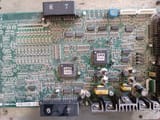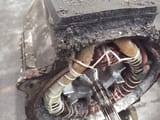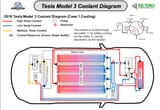>>28472390>fewer mechanical partsexactly. which are the ones that are most likely to fail.
>But their component count and resultant complexity is higherthe cpu in my phone is likely the most complicated piece of technology in my home. but its still ONE FUCKING PART, for all intents and purposes. if it fails, i will replace it. or could, at least. more likely, i'll replace the phone, because its not worth going through all that trouble.
next most complex is the cpu in my pc. and guess what, ITS THE SAME. if it fails, ill replace it. given that in this case the replacement is way easier and that the pc contains other valuable components, if it were to fail, i'd indeed just get a replacement and not throw the entire thing out.
>when a SMC in one of the many control modules failsyou replace the offending board/module
as 1 part. despite the fact that its actually made up of 10s/100s of tiny individual parts. same as the cpus in my phone and computer.
>Calling an EV "simpler" is nonsenseits not. a first year electrical engineering student can assemble a simple electrical motor from base components. he can probably make a controller for one, too (if not, certainly a 2nd year could). and the control software for same can be written in a day. i made a robotic snake from 3d printed parts, a few brushless motors and an arduino in college. for a class. took like 3-4 hours, most of which was spend setting up the CPG, doing pid control of the motors was the easy part.
the actual complexity lies in the chemistry of the batteries, in heavily optimized circuit boards and software. and all 3 of them are not a concern because batteries and circuit boards are replaced wholesale as one part, and the software is as yet fully proprietary and inaccessible.
so, from an end user standpoint, an ev is exceedingly simple. if the battery fails, you replace it. if a motor fails, same. if you get an electrical fault in some control module, you replace said module. that is it.











